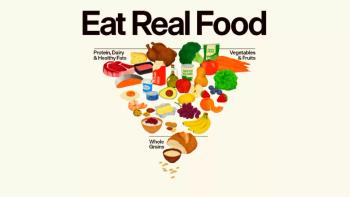
Stories and play could help increase vegetable intake
A recent study investigates how fun stories and engaging playtime can help increase vegetable intake among preschoolers.
Preschoolers are notoriously difficult to feed. It’s a time when independence and a fear of new things take hold, and children have a hard time meeting their goal of a cup or more of vegetables each day.
A new
The study was published in the Journal of the Academy of Nutrition and Dietetics. The research team’s goal was to try and identify methods to increase vegetable uptake among one of the toughest crowds.
To complete the study, researchers tested theories about congruent storytelling and sensory play at 12 preschools in the United Kingdom. Children were taught about a new vegetable that few of the children had tried: celeriac. An illustrated and engaging story along with sensory play promoted celeriac, compared to a story about carrots with or without sensory play that was incongruent with the story line.
The researchers found that children who were in the celeriac group had higher odds of eating the vegetable than those in the carrot group. In the carrot group, 68% of the children were willing to eat a carrot before the activity, and that increased by just 2% to 70% willing to eat a carrot after the story. With the celeriac, 69% of children were initially willing to eat the vegetable, but that number grew to 83% after the intervention. The report concluded that congruency between stories and sensory play could improve both interest in and intake of new vegetables in preschoolers.
Preschoolers are an ideal age group to test this theory because many children experience neophobia, or a fear of new things—especially when it comes to vegetables—around age 2 years. The unfamiliar appearance, texture, and sometimes bitter taste of vegetables don’t help, either.
Researchers used stories and play with focus on the same vegetable, compared to stories alone or stories and play that were about vegetables in general rather than 1 specific vegetable. The research team suggests that learning about the new food, then touching and handling it to take away some of the mystery was helpful in increasing consumption of new vegetables.
For parents, this may be a more difficult tool to use, as it could take several attempts to achieve the best results, the study authors warn.
Reference
- Nekitsing C, Blundell-Birtill P, Cockroft J, Fildes A, Hetherington M. Increasing intake of an unfamiliar vegetable in preschool children through learning using storybooks and sensory play: a cluster randomized trial. J Acad Nutr Diet. 2019;119(12):2014-2027. doi:10.1016/j.jand.2019.05.017
Newsletter
Access practical, evidence-based guidance to support better care for our youngest patients. Join our email list for the latest clinical updates.






